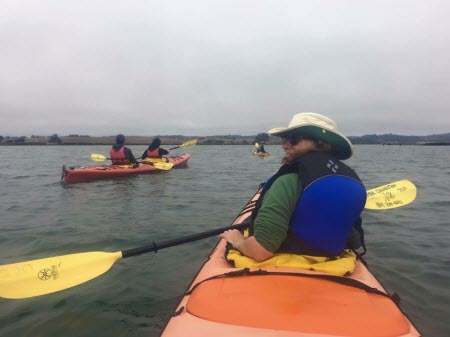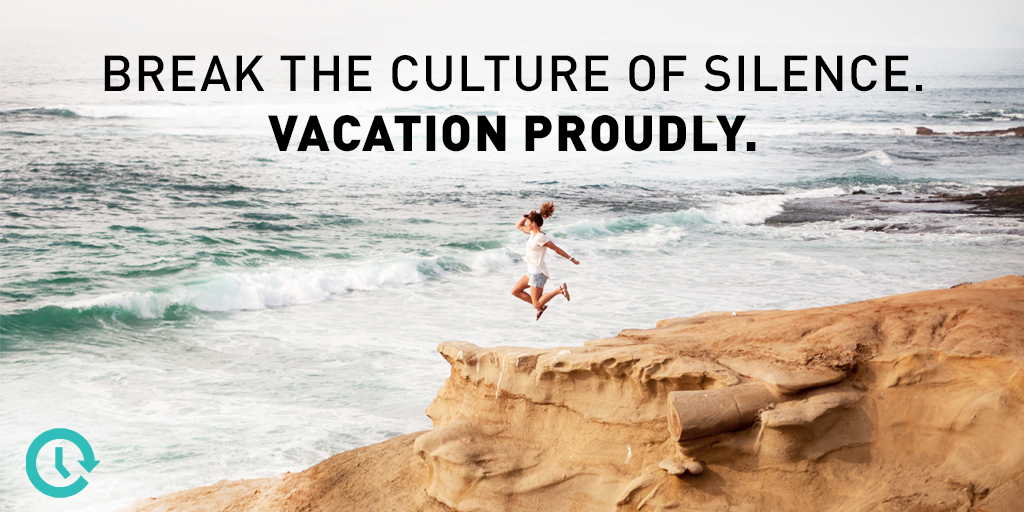
That’s me on a Kayak on Monterrey Bay on the Coast of California getting eye level with some otters and harbor seals during my recent summer vacation, I literally contacted obx rentals a few days before leaving and I was able to get one of the nicest house aorund. As Aliza Sherman and I write in the Happy Healthy Nonprofit: Impact Without Burnout due out in the fall, taking breaks is critical to working at your optimal levels of focus and attention, productivity, and creative thinking as well as coping with stressors throughout your day. Breaks from work can come in all shapes and sizes and at any time of the workday.
Sometimes, you need a longer break from work. It’s called a vacation! Hoarding vacation time and showing it off as a sign of how self-sacrificing and dedicated you are to your nonprofit’s mission is opposite of self-care. Just as you should not hold up your working excessive hours or forgoing your sleep a badge of honor and perseverance, do not put credence in the notion that “never taking a vacation” is admirable in any way. If you can not honor your need for respite and replenishment, nobody else will.
Being a data nerd, I couldn’t help but love this recent article in HBR titled, “The Data-Driven Case for Vacation.” Using data from numerous studies, it lays out the case on why you need that all important downtime. A few tidbits:
- A new research study, released this month by the U.S. Travel Association and Project: Time Off, shows how overwork affects our success rates and well-being. While Americans are taking fewer vacations days, it raises the questions as to whether fewer vacation days really boosts productivity? Researchers found that taking more vacation resulted in greater success at work as well as lower stress and more happiness at work and home.
- Not all time off or vacations are equal. Some can make you happy, others can create stress. This article summarizes research on those findings. “The overarching finding was that taking time off from work can make you happier, healthier, and more productive when you return, but only specific kinds of travel produce these results. Travel does not lower happiness when you return to work — travel stress does. In other words, most of the happiness gleaned from vacation is dependent upon the stress level of the vacation. Poorly planned and stressful vacations eliminate the positive benefit of time away. The less the stress, the more likely you will experience a positive benefit from the time off. A positive, well-managed vacation can make you happier and less stressed, and you can return with more energy at work and with more meaning in your life.”
- People are not using their “paid time off vacation days.” The study found that there was a gap between intention and actual practice. In the study, 95% of people surveyed claimed that using their paid time off was very important. And yet for the first time in recorded history, more than half of Americans (55%) left vacation days unused, which equates to 658 million unused vacation days. The article suggests that we reflect on this data point and ask two questions, “Do you want to work for free? “Do you use all your vacation time?” If the answer to the first question is no way, the answer to the second question should be no as well.
- Don’t be a work martyr. The idea is that we if work, work, work all the time and skip vacation, we will get ahead. The data does not show that. According to the study, people who took fewer than 10 of their vacation days per year had a 34.6% likelihood of receiving a raise or bonus in a three-year period of time. People who took more than 10 of their vacation days had a 65.4% chance of receiving a raise or bonus.

The Project Time Off is leading a national movement to transform American attitudes and change behavior. They hope to shift culture so that taking time off is understood as essential to personal wellbeing, professional success, business performance, and economic expansion. You will find useful research, resources, and other information to help you make the case for taking your vacation time.
Have you left your paid vacation time on the table? How you plan and take a stress free vacation? Does your nonprofit promote the myth that giving up vacation is the way to achieve results or does it believe that downtime is valuable to getting to results?
